
The Global Network for Domestic Election Monitors (GNDEM) is proud to release the first ever “Report on the Global State of Nonpartisan Citizen Election Observers’ Rights.” This study, conducted in partnership with the National Democratic Institute (NDI), draws on the experiences and lessons shared by nonpartisan citizen election monitoring groups worldwide. This research is the first study to document and highlight the global status of nonpartisan citizen observer rights, along with the lessons learned and the concerted efforts needed to ensure that the rights of citizen observers are respected, protected, and promoted.
While ad hoc efforts have previously been made to track enabling conditions for nonpartisan citizen observation and violations of citizen observer rights, there has not yet been comprehensive research on the topic until now. The report looks at five broad areas affecting the ability of citizen observers to monitor elections: 1) legal recognition as well as legal barriers; 2) procedural and operational barriers; 3) violence, intimidation and coercion against citizen observers; 4) freedom of movement, information and expression; and 5) freedom of association. The findings of this report were drawn from a structured survey with 66 organizations from 53 countries participating, covering every region in the world, and supplemented by 11 key informant interviews of observation experts, civil society leaders and human rights defenders.
Unfortunately this report comes at challenging times and confirms that nonpartisan citizen election observers are facing new and more extreme efforts to derail their work than ever before. Findings from the report reveal that election monitoring organizations are experiencing heightened levels of violence, intimidation and harassment, often sponsored by the state – including the recent arrest and detention of GNDEM’s chair. The survey also investigates how accreditation procedures have been used across the globe to undermine the rights of nonpartisan citizen observers.
The mission and dedication of nonpartisan citizen election observers – increasingly recognized as ‘specialized human rights defenders’ – will continue despite growing threats. Elections fundamentally belong to citizens and therefore citizens have the right to observe their own election. Citizen observation serves to engage people in democratic life; to make electoral processes more transparent; and to hold not just election management bodies, but candidates and parties accountable. GNDEM hopes that this report is only the first of what will become a series of periodic assessments to identify the trends and tactics used to limit the rights of citizen observers as well as offering insights on how citizen observers (and their allies) can protect and expand their rights.
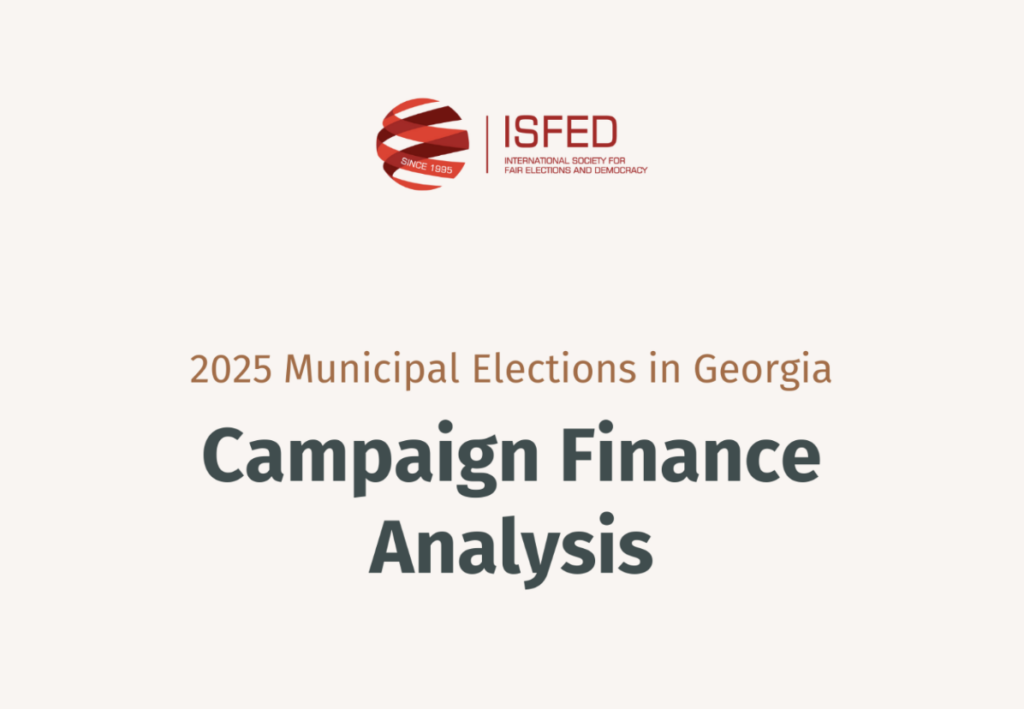
The elections of municipal bodies in Georgia were held on 4 October 2025 amid a boycott by a significant portion of the major opposition political parties.
Georgian EPDE member ISFED (International Society for Fair Elections and Democracy) analysed the distribution of official election campaign revenues and expenditures for the 2025 municipal elections. The analysis is based on final financial reports submitted to the Anti-Corruption Bureau by political parties participating in the elections and covers the period from 5 August to 15 October 2025.
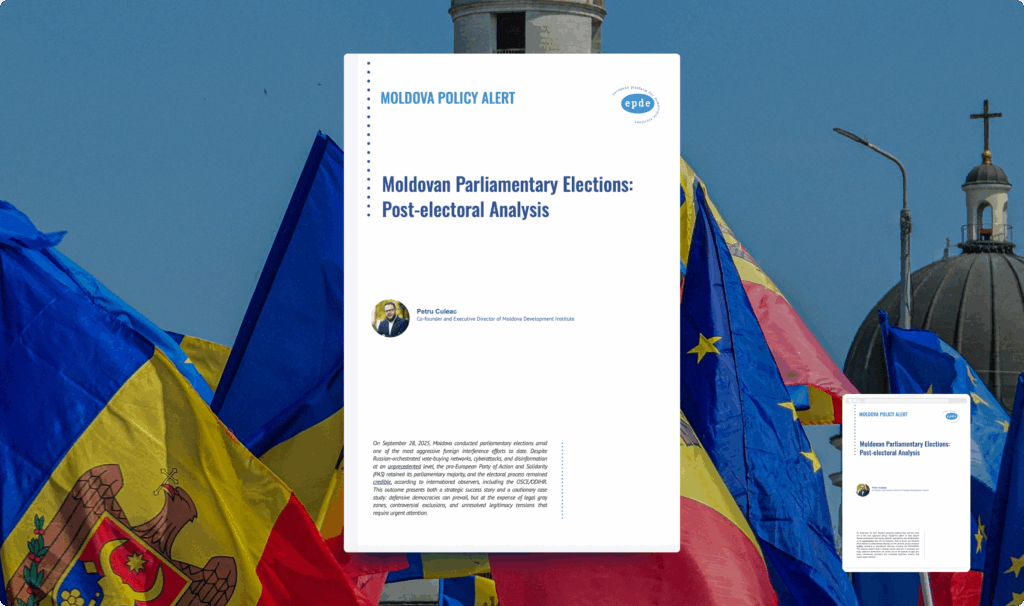
On September 28, 2025, Moldova conducted parliamentary elections amid one of the most aggressive foreign interference efforts to date. Despite Russian-orchestrated vote-buying networks, cyberattacks, and disinformation at an unprecedented level, the pro-European Party of Action and Solidarity (PAS) retained its parliamentary majority, and the electoral process remained credible, according to international observers, including the OSCE/ODIHR. This outcome presents both a strategic success story and a cautionary case study: defensive democracies can prevail, but at the expense of legal gray zones, controversial exclusions, and unresolved legitimacy tensions that require urgent attention.
In this policy alert, Petru Culeac explains the context, analyses the candidates, threat landscape, and multi-layered defense strategy against the hybrid threats, and provides recommendations for a resilient defensive democracy for Moldova.
Petru Culeac is the co-founder and Executive Director of the Moldova Development Institute, a newly established organization dedicated to improving the social, political, and economic landscape in Moldova. With over 15 years of experience in Moldova’s non-pro!it sector, Petru has an in-depth understanding of the country’s context and its development agenda as well as extensive organizational management experience. Until 2023, Petru served as Executive Director of Soros Foundation Moldova, a renowned non-profit foundation, part of the Open Society Foundations network, recognized as a key civil society actor in the Republic of Moldova. Under Petru’s leadership, the foundation expanded its portfolio and successfully implemented numerous technical assistance projects, including for Moldovan authorities in areas such as anti-corruption, justice reform, elections, and education, as well as emergency response projects at the onset of the COVID-19 pandemic. Previously, Petru worked in areas of democracy promotion, free and fair elections, local development, citizen engagement, and youth activism, successfully cooperating with local and international organizations, such as USAID, Chemonics, East Europe Foundation, and IFC. Petru’s academic background includes degrees in Business Management, and European and International Studies from institutions in Moldova, France, and the United States.
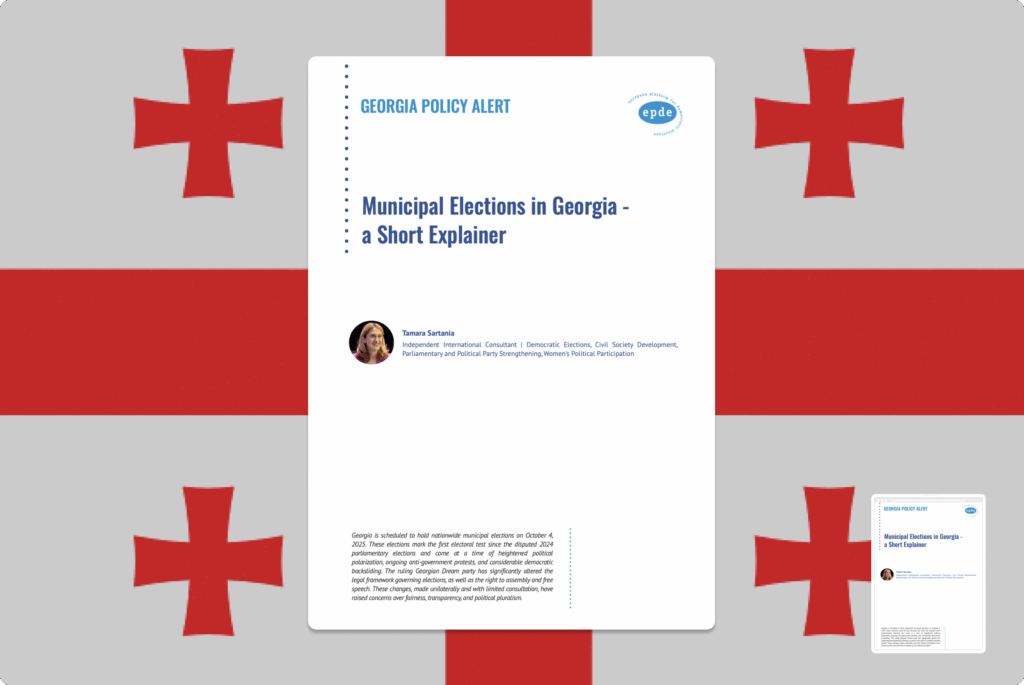
Georgia is scheduled to hold nationwide municipal elections on October 4, 2025. These elections mark the first electoral test since the disputed 2024 parliamentary elections and come at a time of heightened political polarization, ongoing anti-government protests, and considerable democratic backsliding. The ruling Georgian Dream party has significantly altered the legal framework governing elections, as well as the right to assembly and free speech. These changes, made unilaterally and with limited consultation, have raised concerns over fairness, transparency, and political pluralism.
Tamara Sartania provides an overview of Georgia’s 2025 municipal elections, covering changes in the legal framework, election administration, new voting technologies, the shrinking civic space and legal crackdowns, as well as challenges in the political and media landscape.
Tamara Sartania is an independent international consultant, specializing in democratic elections, civil society development, parliamentary and political party strengthening, and women’s political participation. Her work assignments included working as an Election Adviser for OSCE’s Office for Democratic Institutions and Human Rights (ODIHR), where her portfolio included coordinating needs assessment missions and ODIHR’s electoral activities in nine OSCE participating states. In addition, she served as a core team member for several ODIHR election observation missions. As a Deputy Chief of Party for the National Democratic Institute (NDI) Georgia office, Tamara supervised initiatives to support political pluralism in Georgia through capacity building on national and regional levels. She has also worked as a thematic analyst for NDI’s election observation missions to Ethiopia, Ukraine, and Lebanon. Tamara holds a Master of Arts Degree in Law and Diplomacy from The Fletcher School, Tufts University, and a Postgraduate Certificate in Strategic Communications (with Distinction) from King’s College London.

The Promo-LEX Association has presented today Report no. 4 of the Observation Mission for the parliamentary elections of 28 September, covering the period from 11 September to 24 September 2025. The report contains observations and findings regarding the end of the electoral campaign, the behaviour of competitors, and the transparency of campaign financing.
Legal framework. On 25 September, the Central Court of Appeal ordered the restriction of the activity of the PRIM party at the request of the Ministry of Justice. This decision came after the CEC raised suspicions about the party’s illegal financing. Limiting PRIM’s activity has direct consequences for the Patriotic EB, of which it is a part, including the risk of violating the gender quota rule of the Electoral Code if the list of candidates were changed. Since the legislation allows adjustments to the lists only at least 10 days before the elections, the bloc no longer has the legal possibility to correct any defects.
The Promo-LEX OM points out that the unlawful actions of a constituent party should not automatically lead to the cancellation of registration of the entire electoral bloc and recommends applying equal treatment, similar to the one the CEC applied to PPDA. Then, the CEC excluded some persons from the party and obliged the electoral competitor to repair, within 24 hours, the non-conformities related to the mandatory criteria of meeting the gender quota, reserving the right to cancel its registration otherwise. At the same time, Promo-LEX recommends that the future Parliament amend the legislation so that the lists of candidates can be adjusted even closer to the voting day, in justified situations.
Performance of electoral competitors. The electoral campaign for the 2025 parliamentary elections was more intense than the ones for previous elections, being marked by tensions related to Moldova’s status as an EU candidate country and the involvement of the Russian Federation in the electoral process. Electoral competitors carried out 1,984 campaign activities, 50% more than at the beginning of the campaign, mainly distributing informative materials (68%) and meeting with voters (22%). The most active actors were PAS and the Patriotic EB, each with about 26% of the monitored events.
Regarding electoral advertising, Promo-LEX documented 1,754 cases, the most common being the use of visibility materials (vests, hats, bags) and street advertising. Most of such publicity came from PAS, the Patriotic EB, and PN. At the same time, 37 cases of advertising placed in prohibited places were registered, especially on fences and buildings, most of them by PAS and PN. Faults such as the lack of printing data and the use of campaign materials from previous elections were also reported.
Use of administrative resources. Promo-LEX found at least 84 cases of misuse of administrative resources (in 66 cases by PAS, in 8 cases by the Patriotic EB, in 5 cases by the Alternative EB, in 3 cases by CUB, in 1 case each by LOC and PNM). They include taking credit for projects financed with public money, the use of state institutions’ premises for electoral activities, the involvement of mayors and civil servants in the campaign during working hours, as well as the organization of electoral meetings with public sector employees.
The involvement of religious faiths in the electoral campaign was documented in at least six cases, although the law expressly prohibits electoral activism and the use of religious symbols for electoral purposes. Examples include the distribution of messages on Telegram channels calling to vote based on faith, the participation of some candidates in religious services, or the use of images of places of worship in campaign materials. Although the Metropolis of Moldova officially disavowed such practices, journalistic investigations have shown that at the local level the clerics are involved in electoral activities.
During the monitored period, at least three cases of intimidation and provocation with the potential to affect the electoral process were identified. They include the attempt of the authorities of Ceadir Lunga to dismantle a display board critical of the Russian Federation, an incident in Edinet involving a PAS candidate, and the distribution on social networks of messages regarding alleged payments for the vote.
Another phenomenon we found is the involvement of third parties in promoting narratives with an electoral impact. During the monitored period, at least 15 entities carried out such activities, including networks coordinated from the Russian Federation, NGOs, social media pages, and religious channels. They disseminated sponsored or free content, often with a pro-Russian or anti-EU tint, but also messages of support for European integration.
Promo-LEX also observed coordinated inauthentic behaviour on social networks, consisting in the creation of fake accounts, clone websites that artificially amplified narratives meant to compromise the electoral process. Examples are campaigns on TikTok with AI-generated videos, pages that distributed fake messages about polling stations or falsified ballot papers.
Financing of the electoral campaign. Between 8 and 21 September 2025, the declared income totalled about MDL 23.8 million, coming mainly from donations of individuals (67%), legal entities (16%), and material donations (10%). The most income was declared by PAS, Patriotic EB, PN, and Alternative EB, which together accounted for 80% of the total. Material donations came mostly from services and works, Patriotic EB being a leader in this chapter.
The expenses declared in the same period amounted to about MDL 23 million, with 78% concentrated in four competitors (PAS, Patriotic EB, Alternative EB, and PN). The main destination was electoral advertising: TV and radio spots (44%), promotional materials (22%), online advertising (10%), and advertising on social networks (7%).
Civic monitoring carried out by Promo-LEX identified unreported expenses of at least MDL 693,243, especially for advertising on social networks (72%), transportation (14%), trips abroad (7%), and rewards for activists (4%). The largest discrepancies were estimated for PAS (43% of the total), followed by PPDA (12%), LOC (10%), and UCSM (7%).
Electoral bodies. During the monitoring period, the Central Electoral Commission held 10 meetings and adopted 126 decisions concerning the parliamentary elections. However, the last-minute decision on the relocation of five polling stations for voters from the left bank of the Dniester raised concerns about the limitation of access to voting. Although the CEC invoked the security risks reported by the General Police Inspectorate, the Security and Intelligence Service, and the Bureau for Reintegration Policies, the Promo-LEX OM found this decision extraordinary, having an impact on the exercise of constitutional rights. Reserve locations were preliminarily established for six other polling stations.
The process of accreditation of observers and journalists has seen a significant increase compared to previous elections, with nearly 3,000 observers and 111 journalists confirmed. In parallel, 16 opinion polls were authorized, but the phenomenon of unauthorized polls remained present, with examples such as the one attributed to AtlasIntel. At the level of electoral councils and bureaus, Promo-LEX observers found both compliance with working hours and significant deficiencies, such as lack of members in PEBs, non-compliance with incompatibilities by certain members, and cases of electoral corruption. In addition, only 35% of the visited polling stations were accessible to people with special needs.
Hate speech. Between 5 and 18 September 2025, at least 72 cases of hate speech were documented, 62 of them in an electoral context, viewed by more than 2.6 million people. They were based on criteria such as political affiliation, opinion, sexual orientation, gender identity, ethnicity, health, sex, and gender. Hate speech was generated by politicians and electoral competitors, as well as by supporters and opinion leaders. Identified hate speech took the form of incitement to discrimination and violence against LGBT people, Roma, women, or politicians, as well as sexist, xenophobic, and racist messages that reinforced stereotypes and prejudice.
Homophobic speeches were generated by candidates Constantin Cojocari and Ion Ceban, messages that promoted prejudices and stereotypes regarding Roma people were launched by Renato Usatîi, and sexist and xenophobic messages were generated by Victoria Furtună. During the monitoring period, we also identified messages of incitement to violence against politicians, electoral candidates, and their supporters generated by opinion leaders and activists. The stigmatization of some groups of people based on political opinion was further used for electoral mobilization. Hate speech has harmed the dignity and rights of many social groups and damaged social cohesion.
The full report is available in Romanian here.
The Mission is financially supported by Sweden, the Government of the United Kingdom of Great Britain and Northern Ireland, the European Union, the French Embassy, and the Council of Europe, under the aegis of the Civic Coalition for Free and Fair Elections.
The opinions expressed in the public press releases of the Promo-LEX OM belong to the authors and do not necessarily reflect the point of view of financiers or partners. The content hereof may be subject to editorial revisions.
For more information:
Dumitrița Ciuvaga
Communication Officer
Promo-LEX Association
Tel: +373 68 800 827

Between September 1 and 23, the networks monitored in the Republic of Moldova generated 9,882 videos, which accumulated 93.1 million views on the TikTok platform. We are talking about a huge flow of mass-distributed content: over 204,000 shares and 1.5 million likes. In a country with only 2.3 million citizens, these figures indicate a propaganda machine operating at full capacity, flooding the digital space of Moldovans 24/7.
A recurring technique we have noticed is that of flooding the information flow on a certain topic in order to cover up any other type of discourse. This often means that volume replaces the complexity or quality of the messages/videos created. The messages are repetitive, designed to fix the same narratives and conspiracies in the minds of the public, but that does not make them any less effective.
In the Republic of Moldova, however, we observe a distinctive element: a much higher proportion of content generated with artificial intelligence, compared to what we monitored in Romania. Between September 1 and 23, we monitored 93 accounts specializing in producing manipulative AI content, directed almost exclusively against Maia Sandu and the Action and Solidarity Party (PAS), accounts that we also discussed in a separate investigation.
Moldova has improved the accessibility and transparency of its electoral lists and expanded voting opportunities abroad, including postal voting. However, several risks remain, such as concerns about voters’ list accuracy, organized manipulation of Transnistrian voters, and intense FIMI attacks targeting Moldovan society, especially the diaspora. The credibility of the electoral process will rely on ensuring maximum transparency, protecting voting abroad and at polling stations open for Transnistrian voters, and strengthening cooperation with civil society and international partners to combat disinformation.
In this policy alert, Petru Culeac examines the key challenges to Moldova’s electoral process, focusing on the need for greater transparency, secure voting abroad and at polling stations for voters in the Transnistria region, and closer cooperation with civil society and international partners to counter disinformation.
Petru Culeac is the co-founder and Executive Director of the Moldova Development Institute, a newly established organization dedicated to improving the social, political, and economic landscape in Moldova. With over 15 years of experience in Moldova’s non-pro!it sector, Petru has an in-depth understanding of the country’s context and its development agenda as well as extensive organizational management experience. Until 2023, Petru served as Executive Director of Soros Foundation Moldova, a renowned non-profit foundation, part of the Open Society Foundations network, recognized as a key civil society actor in the Republic of Moldova. Under Petru’s leadership, the foundation expanded its portfolio and successfully implemented numerous technical assistance projects, including for Moldovan authorities in areas such as anti-corruption, justice reform, elections, and education, as well as emergency response projects at the onset of the COVID-19 pandemic. Previously, Petru worked in areas of democracy promotion, free and fair elections, local development, citizen engagement, and youth activism, successfully cooperating with local and international organizations, such as USAID, Chemonics, East Europe Foundation, and IFC. Petru’s academic background includes degrees in Business Management, and European and International Studies from institutions in Moldova, France, and the United States.

The Promo-LEX Association has presented Report no. 3 of the Observation Mission for the Parliamentary Elections of 28 September, covering the period from 29 August to 10 September 2025. The report contains observations and findings regarding the start of the electoral campaign, the behavior of competitors, and the transparency of campaign financing.
Performance of electoral competitors. The electoral campaign for the parliamentary elections of 28 September 2025 is apparently more dynamic than the one for the 2021 elections, with 1,487 electoral campaign activities being observed for a similar reporting period, most of them consisting of the distribution of informative materials (71%) and meetings with voters (18%), compared to 1,111 events observed for the previous elections. The most active were PAS (509), Patriotic EB (380), and Alternative EB (251).
Also, 3,214 cases of electoral advertising were documented, mostly printed materials (41%) and visibility objects (30%). In this context, some violations were also identified, such as the placement of materials in prohibited places, the lack of full printing data, or the use of political advertising materials for purposes of electoral campaigning before the actual start of campaign. Most cases of improper use concerned the Patriotic EB, followed by MRM, LOC, PAS, Alternative EB, and CUB.
The Promo-LEX OM recorded 52 cases of abuse of administrative resources, most of which concerned PAS, through the use of public institutions and the involvement of officials in electoral campaigning. Two cases of potential voter corruption (Victory PB and PPN) and the involvement of religious denominations in the campaign, with at least four documented incidents, were also reported.
During the observed period, acts of intimidation were reported: PL candidate Vladimir Meleca was illegally detained in the Transnistrian region, and a conflict occurred in Causeni between the veterans of the war on the Dniester and the Patriotic EB, which required the intervention of the police.
Promo-LEX also monitored the involvement of “third parties”. At least 13 cases were identified, including online networks coordinated by the Russian Federation to promote Ilan Șor and the Victory PB, Facebook pages and YouTube channels that propagate pro-East or pro-EU messages, as well as civic initiatives such as EUROPE 2028.
Financing of the electoral campaign. By 8 September, 21 out of the 23 competitors opened bank accounts and 19 filed financial reports. The declared income totaled about MDL 28.4 million, mostly from donations of individuals (47%) and transfers from the current accounts of parties (37%). The most income was reported by PAS, Alternative EB, Patriotic EB, and PN, which cumulated 78% of the total. The declared expenses amounted to over MDL 21.5 million, with the largest part directed to promotional materials (51%) and advertising (35%).
The civic monitoring of electoral campaign financing revealed discrepancies between official reports and actual expenditures estimated by the Promo-LEX OM, which identified unreported amounts of over MDL 1.3 million in 14 competitors, especially in CUB, MRM, and Patriotic EB.
Hate speech and incitement to discrimination. Between 20 August and 4 September, at least 78 cases of hate speech, incitement to discrimination, or other forms of manifestation of intolerance were identified, which were viewed more than 830 thousand times. About 53% of these (41 cases) were spread through mobile apps. Most often, hate speech was based on criteria of political affiliation, professional activity, opinion, sexual orientation, gender identity, health, sex, or gender.
Further, hate speech with a high level of gravity was identified that took the form of incitement to violence and incitement to discrimination. Dehumanization rhetoric used by various actors was also used during this period. These types of messages justified violence and made people in targeted groups an easier target of physical and verbal attack.
Xenophobic, homophobic, and sexist messages also kept appearing in public and electoral speeches. Hate speech was directed against various social groups such as Muslims, Romanians/Romanian speakers, journalists, men, etc. Politicians, members and/or supporters of political parties, women and LGBT people continue to be targeted by hate speech in greater numbers.
Electoral bodies and public administration. The CEC conducted its activity transparently, having organized 12 meetings and adopted 71 decisions. The number of accredited observers increased compared to the 2024 ballots, with more than 2,100 national and international observers registered. Promo-LEX draws attention to the risk of the appearance of “false observers” and calls for the intervention of the authorities to stop these practices. At the same time, the Promo-LEX OM reminds that access to polling stations is allowed only to observers accredited by the CEC, through qualified organizations.
The CEC confirmed representatives and trusted persons for 16 electoral competitors and extended the certification of electoral officials, having validated over 26,000 people. The number of ballot papers increased by more than 42,000 in electoral districts 1-36, especially in Chisinau and Balti, but decreased fourfold in the Transnistrian region, which, according to the Promo-LEX OM, can limit access to vote and generate large queues.
District electoral councils (DECs) generally worked according to the legislation, but there were cases of limiting observers’ access to electoral information and difficulties in setting up precinct electoral bureaus. The unofficial application of a mechanism for checking the integrity of potential electoral officials was also reported, which requires clarity and transparency.
Legal framework. The suspension of activity of Chisinau Mayor Ion Ceban, candidate for the position of MP, highlighted shortcomings in the application of rules on the separation of public office from electoral campaign. Although he said he had suspended his work, the CEC found the opposite and issued him a warning.
Some town halls have also allocated public halls for meetings with voters without the approval of the local council, raising suspicions of illegal use of public property and discrimination against competitors.
The full report is available in Romanian here.
The Mission is financially supported by Sweden, the Government of the United Kingdom of Great Britain and Northern Ireland, the European Union, the French Embassy, and the Council of Europe, under the aegis of the Civic Coalition for Free and Fair Elections.
The opinions expressed in the public press releases of the Promo-LEX OM belong to the authors and do not necessarily reflect the point of view of financiers or partners. The content hereof may be subject to editorial revisions.
For more information:
Dumitrița Ciuvaga
Communication Officer
Promo-LEX Association
Tel: +373 68 800 827

Today, the Promo-LEX Association presented Report no. 2 of the Observation Mission for the Parliamentary Elections 28 September. The document contains findings from the period of 22 July to 27 August. The report highlights the main trends in the electoral period, the activity of potential electoral competitors, but also the risks that can affect the fairness and transparency of the elections.
The electoral period seems to be further marked by external interference, especially from the Russian Federation, by corrupting voters, illegal campaign financing, information manipulation, organizing paid protests and cyber attacks. The involvement of Ilan Șor, who is in Russia, has heightened tensions, and incidents such as aggression against journalists, pressure on judges and disinformation campaigns about voting in diaspora have accentuated vulnerabilities.
The legal framework was marked by changes made by the CEC to the Regulation on the status of observers and the accreditation procedure. The new requirements imposed on observers, such as the demonstration of technical, financial capabilities and experience in the field, are not clearly defined and may generate arbitrary interpretations. Also, the expansion of the grounds for withdrawing accreditation by vague terms such as “hampering” and “jeopardizing” of the voting process raises risks of disproportionate penalties. Promo-LEX and the Ministry of Justice came up with several recommendations, but they have been largely ignored.
Other amendments to the regulatory framework refer to the mobile ballot box and voters lists, argued by the need to increase the fairness of the electoral process, transparency and efficiency, including through digitization. However, these amendments were adopted too close to voting day, contrary to the principle of stability of electoral legislation.
CEC activity. During the electoral period, the CEC functioned, in general, transparently, having organized 21 meetings and adopted over 200 decisions. We shall point out that, during this period, some members of the institution faced pressures that are at the limit of intimidation, which can affect the CEC’s independence.
The number of accredited observers has increased significantly, with 65% representing Promo-LEX. Regrettably, during this period there were some cases of obstruction of the observers’ activity. A serious incident took place on 24 August, when a Promo-LEX observer was insulted and verbally assaulted by politician Alexei Lungu. In two other cases, PSA and CEC delayed or conditioned access to electoral information, thus reducing the transparency of the electoral process.
Establishment of polling stations. The district electoral councils constituted 1,961 polling stations on the territory of Moldova, without those dedicated for voting abroad (301) and for the left bank of the Dniester (12). Compared to the 2024 presidential election, the number of polling stations has increased slightly.
Promo-LEX found that about 91% of the polling stations operate in public buildings, most being open in community centers and schools, implying the responsibility of the authorities to ensure appropriate conditions. In particular, the Promo-LEX OM points out that they must be accessible for people with disabilities.
Organization of polling stations abroad. For the parliamentary elections, the CEC approved 301 stations abroad (about 70 more than in 2024), including four for postal voting, based mainly on 2024 data, without clarifying the weight of the criteria used to determine the number of stations. Promo-LEX supports efforts to make voting abroad accessible; at the same time, the legislation provides for other mechanisms to make voting abroad accessible, such as two-day voting, but also postal voting that could be extended globally. For this election, the accessibility of postal voting increased, being expanded from 6 to 10 countries, within 4 polling stations.
Organization of polling stations for the left bank of the Dniester. The organization of polling stations for voters from the left bank of the Dniester should be treated in a broader context of the need for democratization and reintegration of the uncontrolled region. The current geopolitical environment must be used by the constitutional authorities to make the so-called Tiraspol authorities accept some demands, which in the future would ensure conditions for democratization of the Transnistrian region.
For voters residing on the left bank of the Dniester, polling stations were reduced from 30 to 12, which, according to the Promo-LEX OM, might reduce electoral participation. Promo-LEX estimates that 28 stations would ensure a balance between safety and democratic access.
Nomination and registration of electoral competitors. Between 20 June and 19 August, the CEC registered for the elections the lists of candidates from 4 electoral blocs (Patriotic EB, Alternative EB, Together EB, BUN EB), 13 political parties (PAS, PPDA, CUB, ALDE, PPNM, PSDE, MRM, LOC, AUR, PAM, PL, UCSM, PN) and 4 independent candidates (Andrei Năstase, Olesea Stamate, Victoria Sanduța, Tatiana Crețu). Some applications from parties and potential independent candidates were rejected on the basis of legal non-compliance.
Performance of potential electoral competitors. Although the official electoral campaign starts on 29 August, promotion activities of electoral nature started much earlier. During the monitored period alone, Promo-LEX observers reported at least 2,339 promotional activities, mostly in the form of distribution of information materials, dissemination of street advertising and meetings with voters. Most were organized by the Patriotic EB and PAS. The situation described suggests that the actual expenses for electoral promotion will significantly exceed the amounts to be declared by the electoral competitors in the next 30 days of the campaign.
The Promo-LEX OM also highlighted in the report at least 40 cases of misuse of administrative resources, most of them by PAS (30), involving public employees during working hours and local authorities involved in electoral activities. PAS candidates who are currently ministers promoted the party through official trips to the territory, affecting the fairness of the electoral process and the separation between party and state.
Also, there were reported cases of potential corruption of voters (in two cases by PPDA and in one case each by the Patriotic EB, Victory PB and PSDE) and of the involvement of “third parties” in campaigns to promote or denigrate political subjects, which had an electoral nature, without clear regulations on expenses.
Financing of the elections and the electoral campaign. For the parliamentary elections of 28 September, only 3 of the 21 competitors formed initiative groups, and only Andrei Năstase appointed a treasurer. All competitors complied with reporting requirements. In the case of Andrei Năstase, he exceeded the legal ceiling and was obliged to transfer MDL 115,577 to the state budget, a large part of which had been intended for the voluntary activity of the members of the initiative group.
Hate speech and incitement to discrimination. Between 21 July and 19 August, 233 cases of hate speech were documented, 162 in electoral context, targeting politicians, women and LGBT people, based on political, professional or sexual orientation criteria, a phenomenon more serious than in 2021.
The speeches were propagated by Igor Dodon, Victoria Furtună and Vasile Costiuc, including incitement to violence, discrimination and direct threats.
This press release has been produced as part of the Observation Mission for the parliamentary elections of 28 September 2025. The Mission is financially supported by Sweden, the Government of the United Kingdom of Great Britain and Northern Ireland, the European Union, the French Embassy and the Council of Europe, under the aegis of the Civic Coalition for Free and Fair Elections.
The opinions expressed in the public press releases of the Promo-LEX OM belong to the authors and do not necessarily reflect the point of view of financiers or partners. The content hereof may be subject to editorial revisions.
For more information:
Dumitrița Ciuvaga
Communication Officer
Promo-LEX Association
Tel: +373 68 800 827
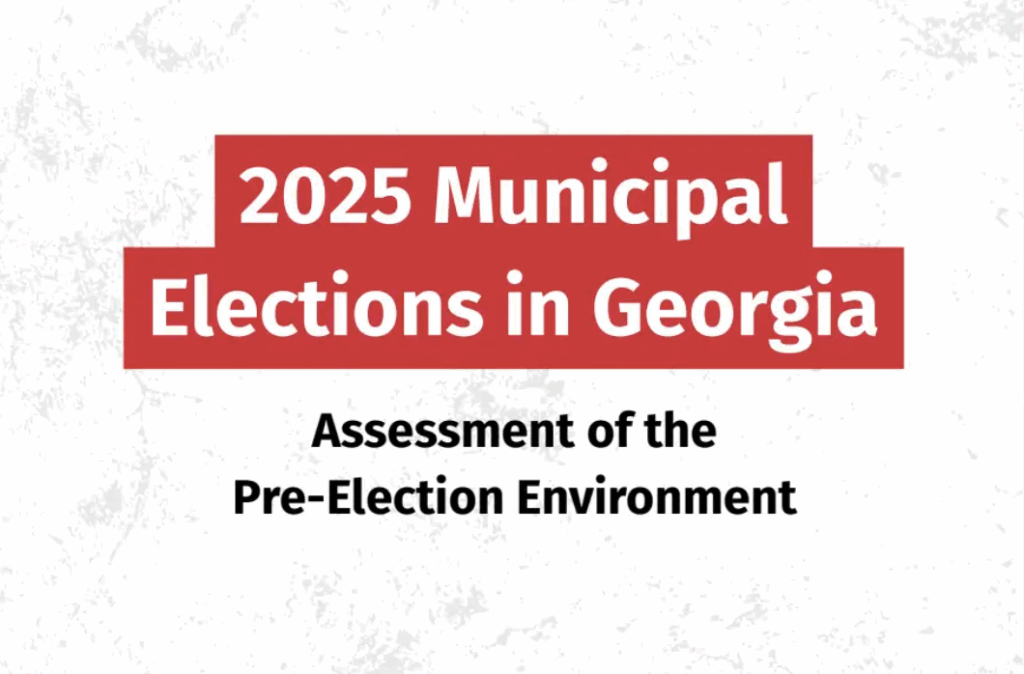
The next municipal elections in Georgia are scheduled for October 4, 2025. Citizens registered across 64 municipalities will have the right to elect both representative bodies (Sakrebulos – city/municipal councils) and executive bodies (mayors) of local self-government units. The official pre-election period commenced on August 5, 2025.
With this report, ISFED assessed the current environment at the outset of the pre-election period and the extent to which the necessary conditions for holding democratic elections are in place. The assessment also takes into account the European Union’s requirement for Georgia, as a candidate country, to ensure free, fair, and competitive elections.
In ISFED’s view, the three conditions outlined in the Venice Commission’s Code of Good Practice in Electoral Matters—respect for fundamental rights, stability of electoral law, and the existence of procedural guarantees—have largely not been met, significantly undermining the prospects for free, fair, and competitive elections.
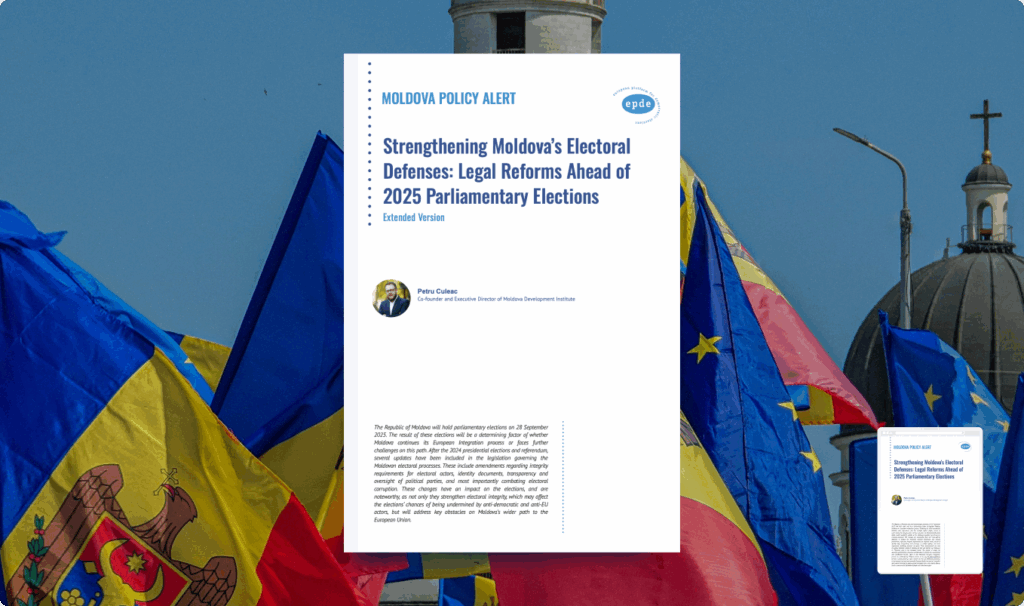
The Republic of Moldova will hold parliamentary elections on 28 September 2025. The result of these elections will be a determining factor of whether Moldova continues its European Integration process or faces further challenges on this path. After the 2024 presidential elections and referendum, several updates have been included in the legislation governing the Moldovan electoral processes. These include amendments regarding integrity requirements for electoral actors, identity documents, transparency and oversight of political parties, and most importantly combating electoral corruption. These changes have an impact on the elections, and are noteworthy, as not only they strengthen electoral integrity, which may affect the elections’ chances of being undermined by anti-democratic and anti-EU actors, but will address key obstacles on Moldova’s wider path to the European Union.
In this policy alert (extended version), Petru Culeac unpacks each of the 13 major amendments, outlining the specific changes and analysing how they affect Moldova’s electoral system and democratic safeguards.
Petru Culeac is the co-founder and Executive Director of the Moldova Development Institute, a newly established organization dedicated to improving the social, political, and economic landscape in Moldova. With over 15 years of experience in Moldova’s non-pro!it sector, Petru has an in-depth understanding of the country’s context and its development agenda as well as extensive organizational management experience. Until 2023, Petru served as Executive Director of Soros Foundation Moldova, a renowned non-profit foundation, part of the Open Society Foundations network, recognized as a key civil society actor in the Republic of Moldova. Under Petru’s leadership, the foundation expanded its portfolio and successfully implemented numerous technical assistance projects, including for Moldovan authorities in areas such as anti-corruption, justice reform, elections, and education, as well as emergency response projects at the onset of the COVID-19 pandemic. Previously, Petru worked in areas of democracy promotion, free and fair elections, local development, citizen engagement, and youth activism, successfully cooperating with local and international organizations, such as USAID, Chemonics, East Europe Foundation, and IFC. Petru’s academic background includes degrees in Business Management, and European and International Studies from institutions in Moldova, France, and the United States.
The Republic of Moldova will hold parliamentary elections on 28 September 2025 and their result will be a determining factor of whether Moldova continues its European Integration process. Following the 2024 presidential elections and referendum, and the multiple hybrid attacks aimed at undermining the integrity of the electoral processes, the Moldovan authorities made several significant updates to the Moldovan legislation governing the electoral processes. The changes are noteworthy given the multi-layered approach to protect the Moldovan electoral framework, and include amendments regarding integrity requirements for electoral actors, misuse of identity data, transparency and oversight of political parties, and most importantly combating electoral corruption.
In this policy alert, Petru Culeac unpacks four major legal packages adopted in 2025, explains how they reshape Moldova’s electoral landscape and mark a shift from reactive measures to a more systemic, preventive approach – treating electoral corruption and extremism as structural threats, not just a criminal offense.
Petru Culeac is the co-founder and Executive Director of the Moldova Development Institute, a newly established organization dedicated to improving the social, political, and economic landscape in Moldova. With over 15 years of experience in Moldova’s non-pro!it sector, Petru has an in-depth understanding of the country’s context and its development agenda as well as extensive organizational management experience. Until 2023, Petru served as Executive Director of Soros Foundation Moldova, a renowned non-profit foundation, part of the Open Society Foundations network, recognized as a key civil society actor in the Republic of Moldova. Under Petru’s leadership, the foundation expanded its portfolio and successfully implemented numerous technical assistance projects, including for Moldovan authorities in areas such as anti-corruption, justice reform, elections, and education, as well as emergency response projects at the onset of the COVID-19 pandemic. Previously, Petru worked in areas of democracy promotion, free and fair elections, local development, citizen engagement, and youth activism, successfully cooperating with local and international organizations, such as USAID, Chemonics, East Europe Foundation, and IFC. Petru’s academic background includes degrees in Business Management, and European and International Studies from institutions in Moldova, France, and the United States.

on 22 July, the Promo-LEX Association launched the Observation Mission for the parliamentary elections of 28 September 2025 and presented its first monitoring report which covers the period from 17 April to 21 July 2025. The report highlights the main trends from the pre-election period, recent legislative amendments, and potential risks to the fairness and transparency of the elections.
This is the 30th observation mission that Promo-LEX has organized since 2009. Four interim reports and one final report will be published during the mission. Press conferences and press releases on the conduct of the voting will be held on election day. The Promo-LEX central team prepares the reports based on their own findings and data collected by 42 long-term observers (LTOs), two of whom are monitoring voting abroad. Additionally, a team of nine specialized monitors will observe hate speech and incitement to discrimination.
On election day, 400 short-term static observers (STOs) will monitor polling stations, supported by additional 400 STOs in 200 mobile teams. Promo-LEX will cover all polling stations in Transnistria and approximately 100 stations in the diaspora, focusing particularly on postal voting.
Findings of Promo-LEX Mission Report No. 1
An intense election year, marked by presidential elections and a constitutional referendum, precedes the 2025 parliamentary elections. For this reason, it is clear that the upcoming autumn elections will continue to be dominated by geopolitical division and various strategies of political polarization. We particularly note political discourse that targets the institutions managing the electoral process, such as the Central Electoral Commission (CEC) and the Audiovisual Council (CA). This discourse seems intended to delegitimize the 2025 autumn elections in advance and, implicitly, to undermine public confidence in state authorities.
Legal Framework. On 17 April, the Parliament of the Republic of Moldova set the date for the 2025 parliamentary elections as 28 September. Selecting a date more than five months in advance makes the electoral process more predictable.
Of the 22 recommendations that Promo-LEX made after the 2021 parliamentary elections, 20 were partially or fully implemented and two were ignored. Recommendations that were implemented include the regulation of organized voter transportation, the prohibition of religious groups’ involvement in the campaign, and improved access to voting for the diaspora.
Three major changes were made in 2024–2025, including changes to the registration of electoral competitors and toughen sanctions for electoral corruption.
Nomination of Candidates. Nominations for the parliamentary elections on 28 September 2025, began on 20 July and will end 40 days before the election. The Central Electoral Commission (CEC) announced that only 39 of the 66 registered political parties meet the conditions for participation and 14 parties are awaiting decisions from the Public Services Agency (PSA) or the courts. Parties that did not submit a complete list of their leadership to the PSA, as required by the recent amendments to the Law on Political Parties, have had their right to participate in the campaign restricted. This rule could affect the competitiveness of the parliamentary elections. During the first two days, the PAS and the PPDA submitted applications to register their lists, and seven potential independent candidates requested to begin collecting signatures.
Promotional, Election-oriented Activities. During the pre-election period, Promo-LEX observed several parties and potential electoral competitors holding such activities, even though the official campaign does not begin until 29 August 2025. According to the law, an electoral campaign is only permitted after candidate registration and no earlier than 30 days before the election. This means that the parties’ current actions can be considered political promotional activities if they are not held in the context of initiative group activities and/or the promotion of potential designated candidates.
Active parties include PAS, which launched a national information campaign on its achievements and plans for EU accession, and PSRM, which promotes “sovereign politics” through the distribution of materials and collection of signatures. Other parties, including PPMM, PRIM, PPVM, MRM, BE “Alternativa”, and BP “Împreună”, are holding online campaigns, meetings with citizens, protests, and presentations of political programs.
Use of Administrative Resources. Promo-LEX warns against using administrative resources for political purposes during or outside the election period, as this contravenes international standards on the separation of state and political parties.
Before the parliamentary elections, state institutions used public resources and funds to gain political capital. After the election date was set, Parliament amended the state budget and reallocated funds for various projects. The government then launched the “Moldova Poate” campaign, which PAS took up and promoted. Promo-LEX points out that these initiatives could be mistaken for election promises.
The Mayor’s Office of Chisinau ran information campaigns with personalized messages for Mayor Ion Ceban, and MAN sponsored the campaigns’ promotion on online platforms. According to Promo-LEX, President Maia Sandu was also involved in supporting the PAS list of candidates. This raises questions about the neutrality of the presidential office.
Financing of Elections and Electoral Campaigns. The CEC budget for the 28 September 2025 parliamentary elections is approximately 152.86 million MDL, of which over 10 million are intended for postal voting.
Electoral campaign financing is strictly regulated, with ceilings set by the CEC representing 0.1% of state budget revenues relative to the number of voters. For initiative groups (IGs), this ceiling is multiplied by the maximum number of signatures required to support a candidate for elective office. Candidates may use their own resources, accept donations, and receive interest-free loans from the state. However, funding from foreign companies, non-governmental organizations, religious groups, or citizens with no declared income is prohibited.
All parties must open a dedicated bank account and appoint a responsible treasurer. Financial reports must be submitted to the CEC weekly and published within 24 hours. Failure to comply with these rules may result in sanctions from the CEC ranging from warnings and withdrawal of budget allocations to cancellation of an electoral competitor’s registration or deregistration of a party.
Central Electoral Commission (CEC) activity. Elections are organized according to the Calendar Program approved by the CEC. Although the CEC is operating at full capacity, the staff was not complete at the beginning of the election period.
For the 2025 parliamentary elections, the CEC plans to increase the number of polling stations abroad. Postal voting is now available in Japan, South Korea, Australia, and New Zealand, in addition to the countries where it was previously implemented.
During the monitoring period, the CEC received at least six complaints regarding the use of campaign materials outside the legal period, the use of administrative resources, and undeclared donations. Most of these complaints were filed by MAN and PAS.
Hate Speech and Incitement to Discrimination. The parliamentary elections of 28 September 2025 represent the third election held since the introduction of sanctions for hate speech and incitement to discrimination or violence based on prejudice in 2022. According to Promo-LEX monitoring, the frequency of such cases has decreased: the daily average was 1.1 cases in the 2023 local elections and 2.6 cases in the 2024 presidential elections, compared to the 3.9 cases recorded in the 2021 parliamentary elections. Additionally, the number of complaints filed with the General Police Inspectorate has decreased considerably.
Finally, the Monitoring Report provides several recommendations to the institutions involved in the electoral process. These recommendations are addressed to Parliament, the Central Electoral Commission, the Government of the Republic of Moldova, local public authorities, and political parties, and aim to clearly define and sanction the use of administrative resources; ensure the predictability of the electoral process; increase transparency in decision-making and publish information on the CEC’s budget and regulations; prohibit the use of administrative resources during the election period; and conduct election campaign in strict accordance with the law.
This press release was prepared as part of the Observation Mission for the Parliamentary Elections of 28 September 2025. The Mission is financially supported by Sweden, the Government of the United Kingdom of Great Britain and Northern Ireland, the European Union, the Embassy of France, and the Council of Europe, under the auspices of the Civic Coalition for Free and Fair Elections.
The opinions expressed in the public press releases of the Promo-LEX OM belong to the authors and do not necessarily reflect the position of the donors or partners. The content of this document may be subject to editorial review.
For more information, please contact:
Dumitrita Ciuvaga
Communication Officer
Promo-LEX Association
Phone: +373 68 800 827
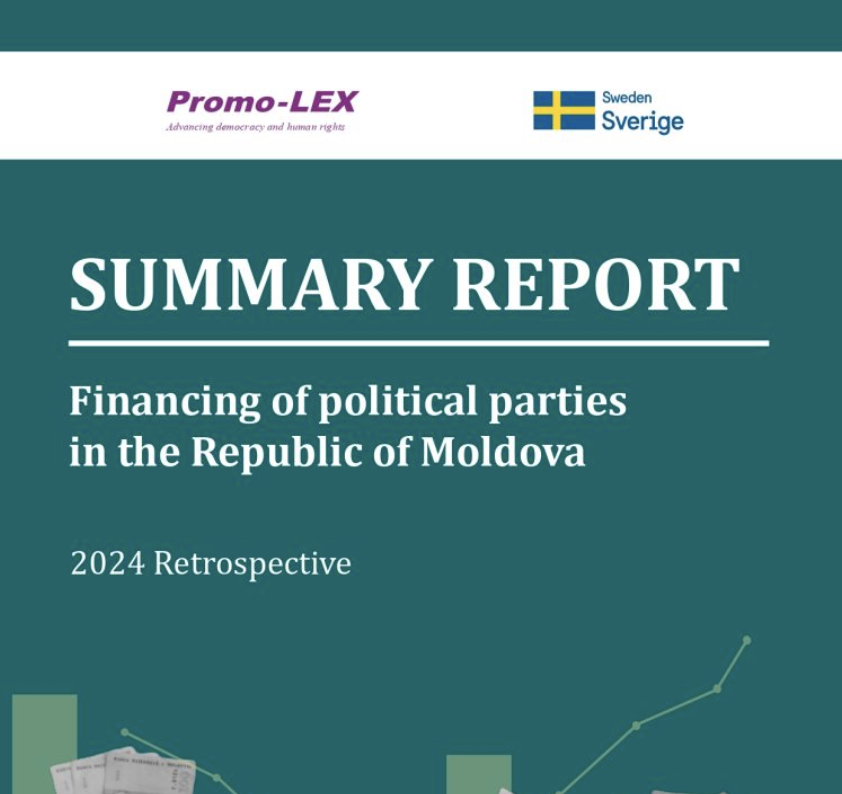
The Promo-LEX Association presented published the Monitoring Report “Financing of Political Parties in the Republic of Moldova. Retrospective of the Year 2024” discussing how political parties financed their activity throughout 2024, and the efforts of the authorities, in particular the Central Electoral Commission, to ensure the supervision and control of political financing. The report presents data on undeclared costs by parties and provides analysis of the relevant legal framework.
An important finding of the monitoring is that political parties have apparently taken responsibility, as several parties have submitted to the CEC financial reports for 2024 – 95% (compared to 75% for 2023). However, although the number of reports submitted has increased, their quality remains questionable. Thus, we find that some parties, especially BP Victorie and its constituents (FASM, PR, PPV and ŞANSĂ), with costly political activities, reported “zero” income and expenses.
The report also shows that the electronic reporting module SSI “Financial Control” continued to function with deficiencies, which led to the extension of reporting deadlines. In this context, Promo-LEX recommends that the Central Electoral Commission (CEC) consider a possible rewrite of the entire reporting module.
The main source of party income remains state budget allocations, which in 2024 constituted 75% of total reported income (2023: 84%). In contrast, income from donations increased significantly, reaching 13.5 million lei – three times more than in 2023. The most donations were received by PAS (35%), PN (27%) and PSRM (18%).
On the other hand, membership fees have decreased, being collected by only 17 parties, and in the case of 11 of them, not even the leaders of the parties have paid their contributions. The monitoring also highlighted the fact that the number of members declared by the parties is still decreasing. Only three parties (PAS, PSRM and PL) reported over 10,000 members, and 28% of the parties declared under 1,000 members, the minimum legal threshold for registration.
In this context, Promo-LEX recommends that Parliament identify a solution that ensures a balance between political financing from public and private sources. At the same time, recommendations were formulated for parties, including: active involvement of members by collecting dues and diversifying funding sources, in order to reduce dependence on public funds .
In terms of expenses, 39 parties declared 71 million lei, with the most reported by PAS (47%), PSRM (17%) and PN (11%).
Promo-LEX estimated unreported expenditures of at least 20 million lei for 20 political parties, which represents 28% of the 71 million officially reported. The most unreported expenditures were estimated for BP Victorie (81%), followed by PSRM (8%), and PN, PAS, PSDE and PPVM at 2% each. The most common types of unreported expenditures concerned advertising on social networks (37%), political events (21%) and headquarters (12%).
The Promo-LEX report also highlights the multiple legislative amendments made recently or during 2024, targeting the activity and financing of political parties, including: the regulation of political blocs, the ban on successor parties, tougher sanctions for voter corruption and illegal financing, as well as the ban on promoting political leaders through philanthropic activities. Failure to comply with the new legal provisions may lead to the limitation of the party’s activity or the ban on participation in elections. However, the legislation still does not include rules on political and electoral financing by third parties, although this has been recommended by international institutions and national observers.
During the period under review, the CEC sanctioned several parties and donors, initiating 33 contravention proceedings for non-compliant financial reporting and notifying the Court of Accounts for verifications. The Ministry of Justice was notified in the case of eight parties, and the activity of six of them was limited. In the case of five other political parties, the CEC requested their dissolution. Also during the monitored period, the Anti-Corruption Prosecutor’s Office prosecuted 12 criminal cases, and in March 2025, two deputies and a close associate of them were convicted for illegal financing and violation of the way in which the parties’ financial resources were managed, who are now being prosecuted.

EPDE member Civil Network OPORA published this updated and revised version of the “Roadmap for Ensuring Organization of Postwar Elections in Ukraine”.
This document is intended to draw the attention of Ukraine’s partners and stakeholders to the primary
steps for the preparation of the first postwar elections in Ukraine and the reform of the electoral
legislation in the foreseeable future.
The Roadmap is only a framework document; therefore, certain topics require broader and more meaningful coverage. Civil Network OPORA has prepared its own expert vision, incorporating the results of previous professional discussions with official parties (Central Election Commission, Ministry of Foreign Affairs, Verkhovna Rada, National Police, National Agency for Corruption Prevention, National Television and Radio Broadcasting Council, and others) to overcome challenges and fulfill European integration commitments existing as of May 2025. Given the need for a critical number of agreed-upon developments in the organization of post-war elections in advance, before the end of the legal regime of martial law, OPORA calls on the Parliament not to postpone substantive discussions aimed at finding systemic solutions. The preparation of the legislative framework, the prevention of Russian interference in the postwar elections, and EU integration directly depend on a depoliticized, high-quality discussion.
This is the second version of the Roadmap, updated based on discussions with a wide range
of stakeholders, which resulted in the refinement of key recommendations.
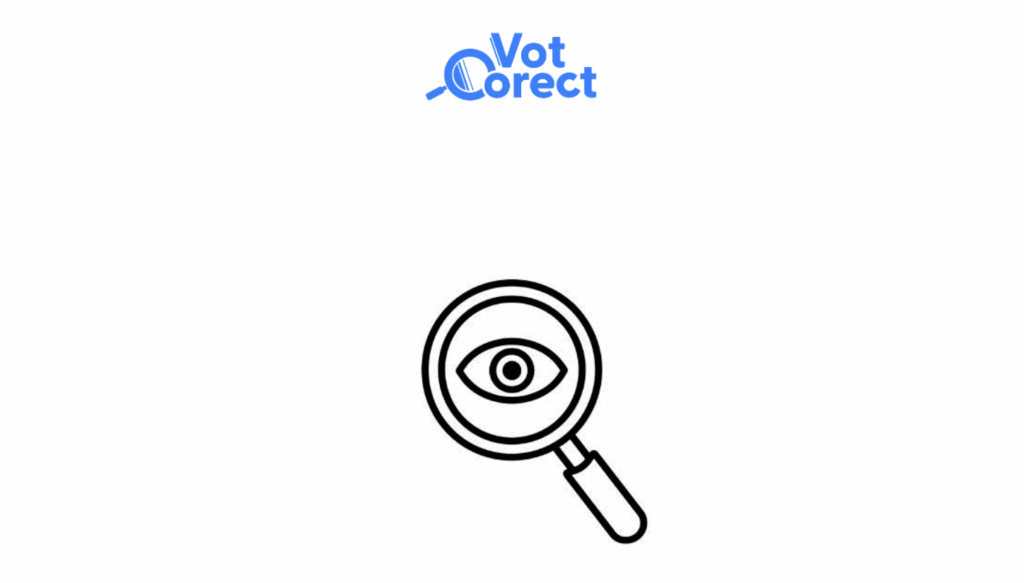
The second round of the presidential election was contested by two candidates with very diverse political positions in a highly polarized atmosphere. The organization of the technical aspects of the process was effective, but the release of deliberate misinformation and alarmist rumors of possible election fraud by the AUR party created tension, put pressure on the election administration and undermined public confidence in the process. The aggressive rhetoric of the AUR candidate towards the media and part of the electorate dominated the last days of the campaign.
The election administration followed the electoral calendar and efficiently organized the technical aspects of the elections. The fact that Central Electoral Bureau (CEB) meetings were not public reduced the transparency of the process. The very high number of online campaign complaints received by the CEB created a considerable workload, and in some cases, the filing of complaints indicated a coordinated effort to load the CEB’s agenda.
In the electoral campaign, the right to association was respected and candidates were able to organize their campaign activities generally without restrictions. The right to freedom of expression, although generally respected, was affected in several cases by decisions of electoral bureaus to remove unlabeled political advertising, even when it expressed the political views of journalists or ordinary citizens. Candidates presented the choices the citizens have to make differently: George Simion urged them to choose between the system and the anti-system, and Nicușor Dan between the pro-EU, pro-Western orientation and alignment with the Russian Federation’s policy. Both candidates took part in a televised debate; George Simion’s non-participation in the ensuing debates limited voters’ access to information about his political program. Alarmist rumors and speculation increased in the run-off campaign; the authorities published denials of several intentional misinformation by the AUR to maintain calm and restore confidence in the electoral process. Regrettably, the campaign was marked by verbal violence and discriminatory attacks.
In the second round of elections, several online monitoring initiatives warned of coordinated inauthentic content. As for the online campaign, Expert Forum monitored more than 1,000 public Facebook groups, identifying 194 pages with potentially coordinated behavior. EFOR also identified a network of inauthentic accounts promoted with the hashtag #ankaversace on Tik Tok, which was only partially removed by the platform. A disinformation campaign via Telegram aimed at swaying the vote in favor of a candidate was labeled by the MFA as Russian interference. Monitoring by a civic group, detailed in the Cheile Împărăției report, confirmed the existence of well-organized networks operating with significant influence capacity, on a hub-and-spoke model, with several dozen key accounts and thousands of satellite accounts.
The first round of the presidential elections recorded the highest costs for a presidential election: income of 172 million lei and expenses of 165 lei, and the overall limits for income and expenditure remain very high. Positively, the PEA published datasets with income and expenditure for the second round on 16 and 17 May on the finantarepartide.ro portal. Nicușor Dan has declared income of 40.4 million lei and expenditure of 31.5 million lei as of 16 May, much of the income originating from loans. George Simion has so far not declared any income or expenditure for the second round. Although the candidate would still have had time to declare these funds, the failure to do so significantly reduced the transparency of the electoral process and goes against the spirit of the law. The fact that the identity of several Facebook accounts that are not attributable to a candidate, which promoted negative campaigning prior to the first round, has not been identified so far, despite complaints lodged to the PEA, is a limitation of the transparency and integrity of the process.
The number of observers accredited by Vot Corect in the country and abroad increased after the first round to 1276. They submitted information from around 1,850 polling stations during the three days of observation through the Vote Monitor app. After the first round, voters submitted over 3,500 complaints about the electoral process via the votcorect.ro portal, most of them related to voters who posted their stamped ballot papers online in violation of the law.
The CEB has adopted numerous decisions regarding complaints about online political advertising. Meta has challenged some of the CEB decisions at the Bucharest Court of Appeal, but these have been rejected and some are currently under appeal. Rădăuțiul Civic and Expert Forum have submitted a request to the Bucharest Court of Appeal to demand that the CEB allow the observation of voting with a special ballot box.
Election day was generally orderly, despite some attempts to disrupt the process and manipulate voters. The opening and voting procedures were positively assessed in more than 98% of observed polling stations. During voting, observers reported cases of voter influence, including pressure and vote buying. Vote counting was positively assessed in 95.7% of polling stations. Observers reported no attempts to compromise the fairness of the results, with one exception, but noted a number of procedural omissions.

Romanian EPDE member Expert Forum EFOR observed the presidential election as part of the Vot Corect Coalition. Read their findings and conclusions of the first round of the 2025 rerun of the presidential election below.
The presidential election offered voters a variety of choices and fundamental rights were generally respected. The election administration organized efficiently the technical aspects of the process and election day was orderly, without significant incidents. The fact that the decision to annul the November elections was insufficiently explained to the voters, combined with the lack of a full account of the failed election and the measures that should have been taken to ensure the integrity of the process negatively affected public confidence in the process and cast doubt on the state institutions’ resilience against hybrid attacks. The elections were held against a backdrop of distrust in the ruling political parties and polarization brought on by the annulled election.
The election legislation is generally adequate for organising democratic elections; however, changes by government emergency ordinance 1/2025 were adopted non-transparently, in violation of procedures and far too soon before the elections. Moreover, some of the amendments, including those related to the marking of political advertisements, changes in the composition of election commissions and shorter hours for some polling stations abroad affected stakeholders’ rights. The elections were organized taking into account several decisions of the Constitutional Court and recommendations of the Venice Commission related to the 2024 electoral process, which were not, however, transposed into law for greater clarity.
The election administration respected the election calendar and took the necessary measures for the good conduct of the elections, but the election commission composition clearly favoured two of the candidates, while in most commissions eight others were not represented at all. Election commission sessions are not public at any level, which reduced transparency.
A total of 17,988,031 voters were registered on the permanent lists in the country; the voter register also includes 1,016,350 voters residing abroad. The electronic verification of voter identity and marking in real time those who have voted through the SIMPV allows the identification of multiple voting attempts. Voters who cannot reach polling stations can opt for postal voting, if abroad, or for mobile voting in the country.
Out of 25 nominees, the Central Election Bureau registered 12 candidates and rejected 13; 11 candidates remained on the ballot after one withdrew. The high number of supporting signatures required to file a candidacy limits access to the electoral competition, and the lack of visibility of the signature collection campaigns, combined with the non-transparent verification process, raised questions about their veracity. The signature verification process could not be observed, and although the BEC regulated the methodology in a decision, the regulation is not part of the law and does not have an effect on future elections. Although the Constitutional Court issued several rulings after the 2024 annulled election, the law has not been amended to clearly define eligibility criteria and standards related to observing constitutional principles. The short deadlines for vetting, unclear legislation, lack of investigative tools in case of suspicions and the very long timeframes for the resolution of criminal cases reduce the efficiency of this system, which needs significant reform to increase public confidence.
During the campaign the right to free speech and freedom of association were generally respected and candidates were able to organize their campaign and deliver their message to voters without restrictions. Restrictive outdoor campaigning regulations, which reduce campaign visibility, prompted several candidates to start campaigning during support signature collection in order to be able to use large billboards and banners, which are banned during the campaign. Most of the campaign was conducted online and the overall tone of the campaign was rather aggressive and dominated by attacks between candidates. Several candidates took on a conservative and nationalist rhetoric, partly continuing the narratives launched by Călin Georgescu in 2024. The presidential debates added vitality to the campaign and attracted public interest. The CEB and the Ilfov county election commission noted the illegality of an extensive campaign carried out by the AUR party in violation of personal data protection regulations.
Online campaigning, especially on Tik Tok, continued to be contaminated by coordinated inauthentic behavior, which was noted by several electoral competitors. Expert Forum social media monitoring identified a significant increase in coordinated, politically motivated content, disguised as organic content and generated by networks of inauthentic accounts. In the absence of regulatory mechanisms adapted for digital content, third-party campaign financing continues to have a significant impact. Expert Forum identified two strategies to promote inauthentic content, both predominantly found on TikTok. In addition to internal inauthentic behavior, the campaign was also affected by foreign interference attempts associated with Russian Federation interests. On election day, the National Cyber Security Directorate (DNSC) reported that numerous websites of public interest had been the target of cyber-attacks claimed by a pro-Russian group; all affected websites were functional during the same day.
Competitors did not have equitable access to resources, with the Romania Forward coalition candidate enjoying a visible financial advantage. Limits on income and expenditure are high and this presidential election campaign was the most expensive so far. Political financing relies primarily on public resources, subsidies and reimbursements from public funds, which reduces the parties’ independence from the state. The campaign was mostly financed by loans and private funding declared by the parties, and spending most prominently included costs for online and media promotion. Campaign finance transparency remains limited even if revenues and expenditures are disclosed during the campaign, as the donors are not disclosed. Pre-campaigning is not effectively regulated. Although the PEA initiated more checks during the campaign, staff shortage limits the institution’s ability to act at short notice. Auditing financial sources beyond the submitted reports is limited and not within AEP’s attributions, which significantly limits transparency and allows illegally obtained funds to be reimbursed from public money.
The legal framework allows stakeholders to file complaints and appeals, and the deadlines for both the election administration and the courts are mostly reasonable. BEC decisions can be appealed to the High Court or the Court of Appeal, but the election law does not define the procedures for appealing decisions to the courts, with certain exceptions, contrary to international standards. Although Vot Corect has not observed the resolution of complaints in a systematic manner, we consider that in general the deadlines given by the courts were short, at least for appeals related to BEC decisions. The BEC received a significant number of complaints related to online political advertising; of more than 1,700 decisions, few were challenged, and were upheld by the court in most cases. Some of the BEC decisions were criticized, including for considering criteria beyond the legal definitions and for unfair penalties. Since January, almost 150 cases related to the annulment or suspension of the Constitutional Court decision to annul the November election were registered with the courts, eventually finding one judge to decide in favour of the petitioner, even though Constitutional Court decisions are final and binding. While the right of petitioners to lodge complaints is essential and should not be limited, such rulings undermine the integrity and credibility of the process and the appeal mechanisms.
Election day was generally calm and orderly. Opening and voting were assessed positively in the overwhelming majority of observed polling stations, but observers also noted cases where the mobile ballot box procedures were not respected and cases where voters residing in another locality were not allowed to vote. Although several procedural omissions were observed during the vote count, observers also assessed the counting generally positively and noted that in almost all observed polling stations results were correctly recorded. Voting abroad was efficiently organized with multiple options for exercising the right to vote.
Vot Corect is a civil society coalition formed by Expert Forum, the Civic Resource Centre, Civica, the Center for the Study of Democracy, the Civic Rădăuți Association, the Electoral Observatory, the Federation of Law Students’ Associations of Romania and Code for Romania. For election observation in the Republic of Moldova we cooperate with the Promo-Lex Association.

What can we observe in the case of the 2025 presidential elections in Romania?
The era of fake news is history. Not that we should no longer be concerned about fake news, which is a matter of content; combating it remains important. But the stakes in the 2025 campaign have become the ability to flood the digital space with oceans of information, memes, and videos about one’s own candidate, plus negative propaganda about opponents, much more so than in the past.
In other words, it is about exploiting platform algorithms, to the limit or beyond the provisions of Romanian law, which are restrictive but outdated, lacking effective enforcement mechanisms. Because it is one thing to put false or manipulativ narratives in the virtual space, but whose source can be identified – and another to create from scratch tens of thousands of supporters who do not exist, i.e. accounts based on bot networks, which fill the public conversation with duplicate posts and comments, giving the impression of popularity and mobilisation.
More information and the report is available here
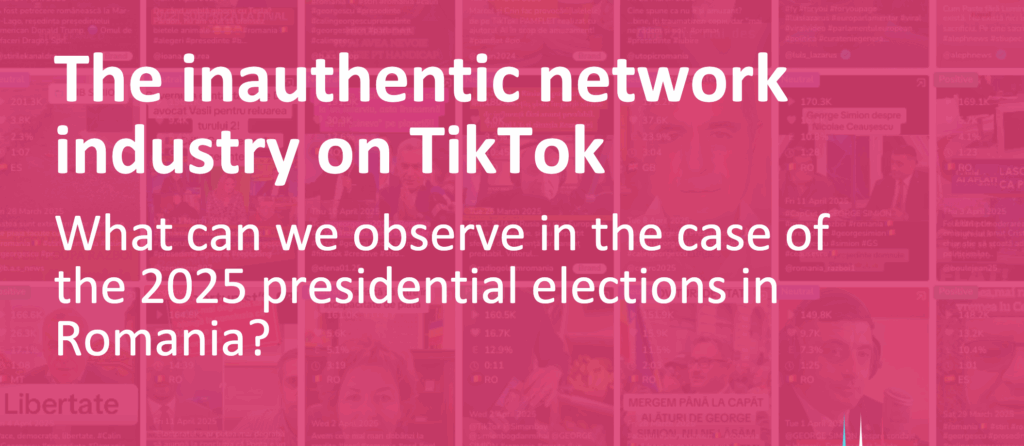
What can we observe in the case of the 2025 presidential elections in Romania?
Online election campaigns in Romania have entered a new era, dominated by an industry of political promotion through inauthentic networks. Although TikTok prohibits official political advertising, in practice we are witnessing an explosion of disguised, coordinated content favorable to certain candidates, created with the aim of simulating popular support and influencing public perception. This practice not only unbalances the electoral competition, but also calls into question the integrity of the democratic process.
More information and the report is available here
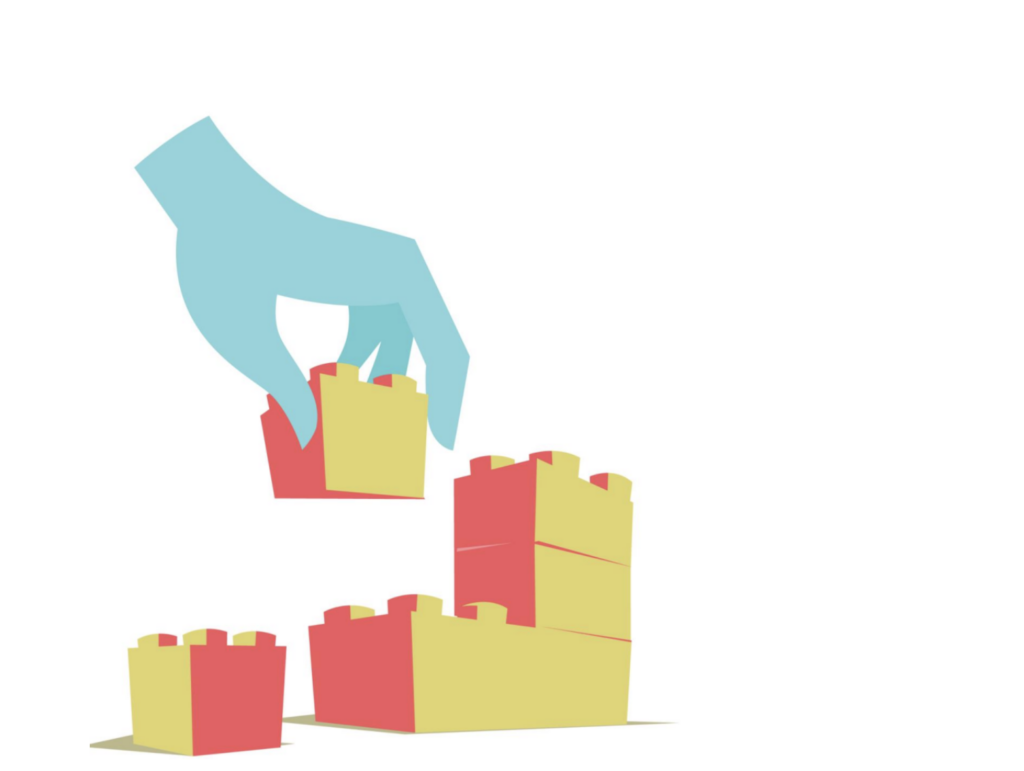
Romanian EPDE member Expert Forum (EFOR) published a report on the modification of the composition of the electoral commissions.
The way electoral commissions are setup has changed constantly in recent years. But not always through laws discussed in Parliament long before the election date, but through emergency ordinances or articles crammed into a long list of amendments. This is despite the fact that one of the basic principles of legislative stability, defined by the Venice Commission’s Code of Good Practice on Electoral Matters, is that the fundamental elements of electoral law, including the composition of electoral commissions, should not be modified less than a year after the elections.
More information and the report is available here (Romanian only).
Subscribe to our
newsletter
Sign up for our monthly newsletter
and receive the latest EPDE news
Subscribe to our
newsletter
Sign up for our monthly newsletter and receive the latest EPDE news